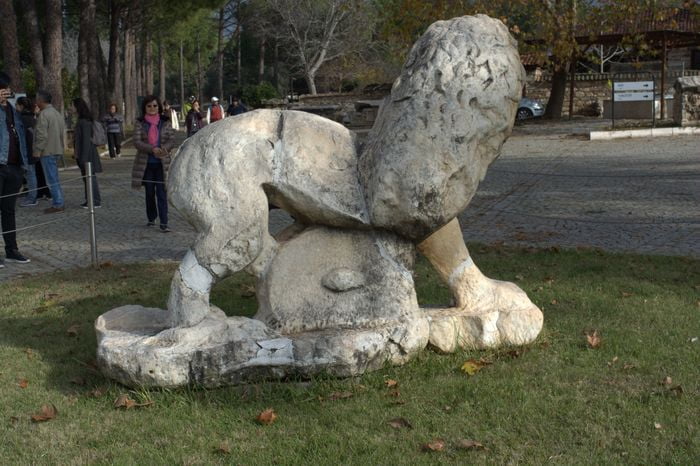XVII. Patron Guardianship.
By the same law of the Twelve Tables, the tutelage of freedmen and freedwomen belongs to their patrons, and to the children of their patrons; and this tutelage is called legal tutelage, not that the law contains any express provision on the subject, but because it has been as firmly established by interpretation, as if it had been introduced by the express words of the law.
For, as the law had ordered that patrons and their children should succeed to the inheritance of their freedmen or freedwomen who should die intestate, the ancients were of opinion that the intent of the law was that the tutelage also belonged to them; since the law which calls agnati to the inheritance, also appoints them to be tutors, because, in most cases, where the advantage of the succession is, there also ought to be the burden of the tutelage. We say “in most cases,” because if a person below the age of puberty is manumitted by a female, she is called to the inheritance, although another person is tutor.
XX. Appointing of Tutors.
If any one had no tutor at all, one was given him, in the city of Rome by the praetor urbanus, and a majority of the tribunes of the plebs, under the lex Atilia; in the provinces, by the praesides under the lex Julia et Titia.
1. Again, if a testamentary tutor had been appointed conditionally, or for a certain time, until the completion of the condition or arrival of the time fixed, another tutor might be appointed under the same laws. Also, if a tutor had been given unconditionally, yet, as long as no one had accepted the inheritance, as heir by the testament, another tutor might be appointed for the interval. But this office ceased when the condition was accomplished, when the time arrived, or the inheritance was entered upon.
2. If, again, a tutor was taken prisoner by the enemy, application could be made, under the same laws, for another tutor, whose office ceased when the first tutor returned from captivity; for on his return he resumed the tutelage by the ius postliminii.
3. But tutors have ceased to be appointed under these laws, since they have been appointed to pupils of either sex, first by the consuls, after inquiry into the case, and afterwards by the praetors under imperial constitutiones. For the above-mentioned laws required no security from the tutors for the safety of the pupil’s property, nor did they contain any provisions to compel them to accept the office.
Read More about The Miracle of the Jew part 1








